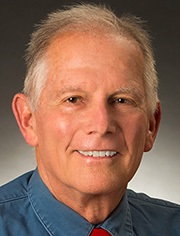Trump’s slap in the face to his strongest supporters
In the days immediately following his decisive victory, President-elect Donald J. Trump was cruising right along. His avowed enemies, such as Meta’s Mark Zuckerburg, embattled Canadian Prime Minister Justin Trudeau, and MSNBC’s “Morning Joe” co-hosts Joe Scarborough, scurried to Mar-a-Lago to kiss and make up.
Then, the unlikely happened. During the Christmas and Hanukkah seasons, a brouhaha broke out between MAGA loyalists and immigration expansionists Elon Musk and Vivek Ramaswamy, who want to expand the H-1B visa program, which allows companies to hire foreign workers in specialty professions.
Trump, to his base’s horror, sided with Musk, Ramaswamy, India-born venture capitalist Sriram Krishnan, the incoming senior artificial intelligence policy advisor, and ex-PayPal COO David Sacks, recently nominated to become Trump’s AI “czar.” Multi-millionaire and billionaire Silicon Valley tycoons are in accord that issuing tens of thousands more H-1B visas is essential.
Musk defended the program, arguing misleadingly that the U.S. has a “dire shortage of extremely talented engineers” and compared importing IT workers to the NBA drafting international hoopsters. That’s quite a stretch of Musk’s imagination, since each year U.S. universities graduate thousands of citizens with STEM degrees.
Adding fuel to the fire, Trump spoke glowingly about the H-1B workers he hired at his properties and echoed the expansionist’s theme that the U.S. needs “exceptional talent,” a common misnomer used to describe foreign-born visa employees who may have only average IT skills.
Trump’s affinity for H-1B workers is a dramatic about-face from the position he held during his first term, when he emphasized the importance of hiring Americans first. To his supporters, Trump’s siding with the expansionists was not only a cataclysmic betrayal, but also brought into question whether Musk had supplanted the president as the administration’s supreme potentate.
Musk is Trump’s most important donor, his most influential social media contributor, a key policy advisor and a Mar-a-Lago regular. But Musk’s most critical role: he was vital to Trump’s re-election campaign. As the “who’s the president?” gossip continued, Trump, speaking at the conservative Turning Point USA’s AmericaFest conference in Phoenix, deflected the question and stated, tongue-in-cheek, that it would be unconstitutional for the South Africa-born Musk to become president.
Trump has a golden opportunity to fulfill his vow to defend American workers and test the elitists’ deception that H-1Bs are the most qualified workers and essential to their corporations’ successes. The scrum between the elitists and the MAGAs might be resolved definitively if Trump could muster up the courage to cancel the next H-1B visa lottery. By definition, a lottery cannot exclusively produce “the best and brightest.”
If the impossible happened and the lottery were eliminated, that would mean that Meta, Microsoft, IBM, etc. would have to get along with their already-employed IT workers – no more massive layoffs – or hire U.S.-born IT workers. Breitbart’s Neil Monro, a long-time H-1B analyst, wrote “the annual inflow of white-collar visa workers is at least 500,000. The resident [H-1B] population is at least 1.5 million, nearly all of whom work longer hours at lower pay in the hope of getting green cards from the U.S. government.” Put the emphasis on “lower pay” and “green cards.”
The H-1B visa is dual-intent, which means that a foreign national can enter the U.S. as a nonimmigrant but retain the option to eventually apply for a permanent residency green card.
Since its inception as part of the Immigration Act of 1990, the H-1B visa has been abused and its original intent – to provide a non-immigrant temporary permission to work in the U.S. legally – has been hijacked. The corrupt American university system, which continues to enroll foreign students – 1.2 million as of academic year 2023-24 – at an increasing percentage of its total student population, forces citizen students to compete with the entire world for admission into coveted STEM programs. Specifically, 56% of international students studied STEM fields, and China, America’s top global threat, receives 27.4% of the H-1Bs. India received 25.4%.
Writing in the Economic Policy Institute, Daniel Costa and Ron Hira concluded among the many flaws in the H-1B visa, none is more egregious than allowing employers to legally hire and underpay workers relative to U.S. workers in similar occupations in the same region. For those who advocate for ending illegal immigration but then add that they’re all-in on legal immigration, note that the H-1B visa is a legal vehicle to enter the U.S., take jobs even though Americans’ employment and wages are undercut.
Whether it’s illegal immigration like what’s gone on for four years at the northern and southern borders or legal via the H-1B visa, Americans want less immigration. Trump wasn’t elected to undermine his supporters’ reduced immigration hopes, the very issue that helped return him to the White House.
Joe Guzzardi is an Institute for Sound Public Policy analyst who has written about immigration for more than 30 years. Contact him at jguzzardi@pfirdc.org.


Meet the Editor
David Adlerstein, The Apalachicola Times’ digital editor, started with the news outlet in January 2002 as a reporter.
Prior to then, David Adlerstein began as a newspaperman with a small Boston weekly, after graduating magna cum laude from Brandeis University in Waltham, Massachusetts. He later edited the weekly Bellville Times, and as business reporter for the daily Marion Star, both not far from his hometown of Columbus, Ohio.
In 1995, he moved to South Florida, and worked as a business reporter and editor of Medical Business newspaper. In Jan. 2002, he began with the Apalachicola Times, first as reporter and later as editor, and in Oct. 2020, also began editing the Port St. Joe Star.